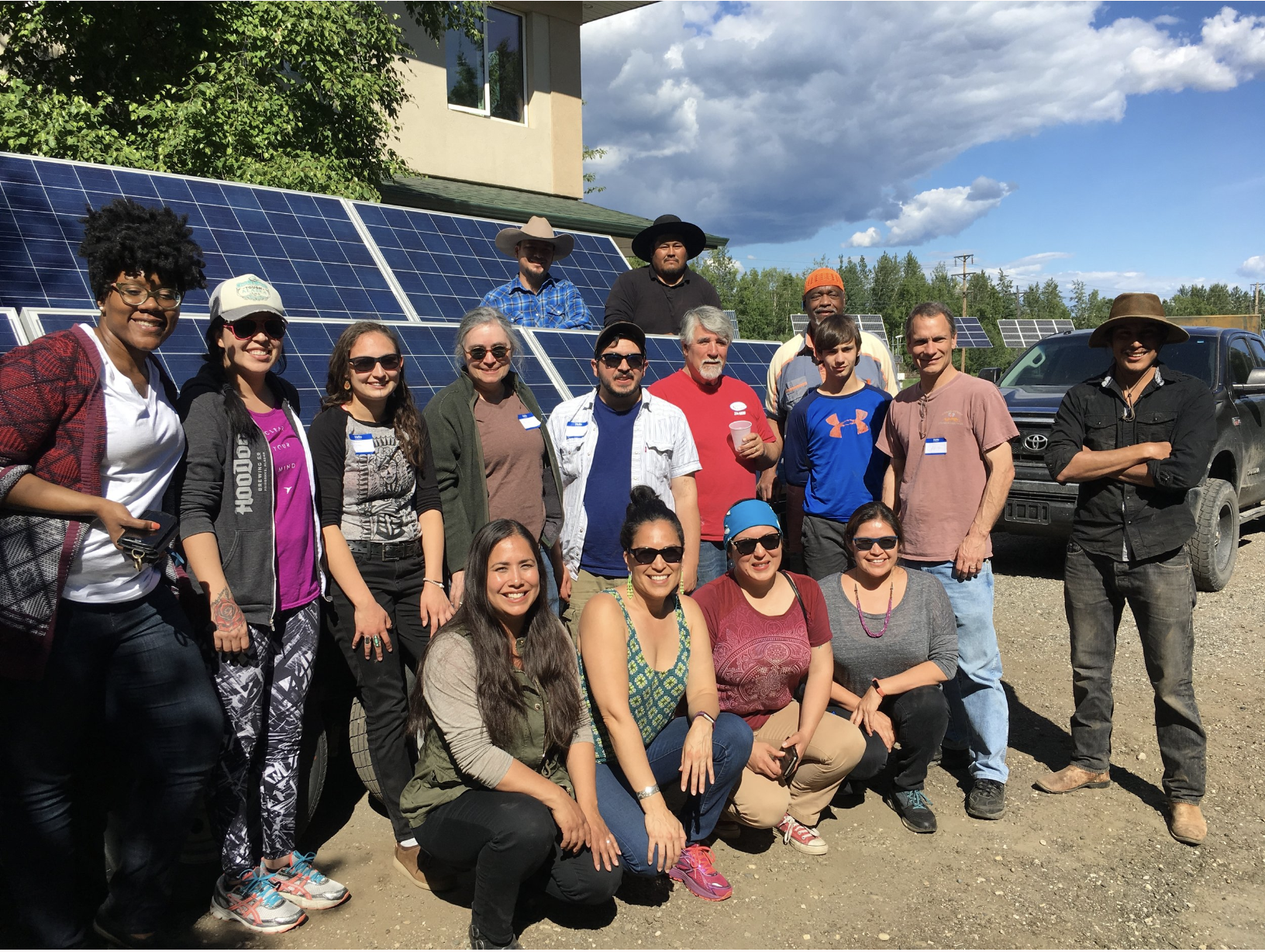
Energy injustice refers to the unequal distribution of affordable and reliable energy resources. In rural Alaska, this manifests as disproportionately high energy bills and unreliable power generation. These disparities are more than inconveniences—they have profound implications for health, safety, and economic stability. When communities face frequent power outages or struggle to afford basic electricity, their ability to thrive is severely compromised. Unreliable energy affects everything from food storage and heating to the operation of essential medical equipment. High energy costs force families to make difficult choices between paying for electricity and other necessities. This persistent energy insecurity undermines the resilience and well-being of rural Alaskan communities, perpetuating cycles of economic hardship, and limiting opportunities for self-determination and long-term prosperity.
Alaska’s Renewable Energy Future: New Jobs, Affordable Energy by Alaska Climate Alliance (click image to view)
Learning to Thrive: Alaska’s Next Economy in a Warming World by Alaska Just Transition Collective and Pacific Environment (Click the Image to View)
The Roots of Energy Injustice
The roots of energy injustice in rural Alaska are deeply intertwined with the legacies of colonization and systemic racism. Communities across rural Alaska bear the burden of disproportionately high costs for basic essentials like electricity. Energy insecurity is a manifestation of an ongoing legacy of colonialism, resource extraction, and systemic marginalization of Indigenous people. The disproportionately high costs, decaying infrastructure, and substandard services in rural Alaska are direct consequences of chronic underfunding, policies of forced assimilation, and the intergenerational trauma inflicted by a centuries-old, extractive worldview rooted in the denial of Indigenous sovereignty.
Our Approach
Our organizing approach is guided by the Jemez Principles for Democratic Organizing and Defend the Sacred AK Principles. In line with these principles, we engage with Tribes and BIPOC communities outside of Anchorage and Fairbanks (our primary office locations) only upon invitation. We are committed to fostering grassroots, community organizing efforts throughout Alaska and welcome inquiries about Native Movement's support. While we strive to accommodate all requests, we cannot guarantee availability. For more information or to discuss potential collaboration, please reach out to our Energy Justice Lead, Lila Hobbs, at lila@nativemovement.org.
NEW!! Energy Burden in Alaska: Understanding Energy Burden for Alaska Communities and Charting a Path Forward
A new report, Energy Burden in Alaska, reveals that Alaskans, especially in rural and low-income communities, face the highest energy costs in the U.S. Produced by the University of Washington Center for Environmental Health Equity, Cook Inletkeeper, Native Movement, and the Alaska Public Interest Research Group (AKPIRG) the report shows that nearly 1 in 10 Alaska communities spend over 10% of household income on energy, far above the national average.
Rural areas are hit hardest, with burdens reaching 12% in the Southwest and 22.9% for the lowest-income households statewide. High costs are driven by geography, diesel-powered microgrids, inefficient housing, and reliance on imported fuel—resulting in electricity prices nearly double the U.S. average.
These burdens deepen poverty, harm health, and disrupt cultural practices. The report urges immediate action: expanding the Power Cost Equalization program, boosting energy efficiency investments, and supporting Tribal and community-led renewable energy projects.
Resources
Learning to Thrive: Alaska’s Next Economy in a Warming World by Alaska Just Transition Collective and Pacific Environment
Alaska’s Renewable Energy Future: New Jobs, Affordable Energy by Alaska Climate Alliance
Achieving an 80% Renewable Portfolio in Alaska’s Railbelt by National Renewable Energy Laboratory
The Energy Justice Workbook by the Initiative for Energy Justice
Ten Principles of Energy Democracy by the Climate Justice Alliance
A People’s History of Utilities by The Energy Democracy Project
People’s Utility Justice Playbook by The Energy Democracy Project






